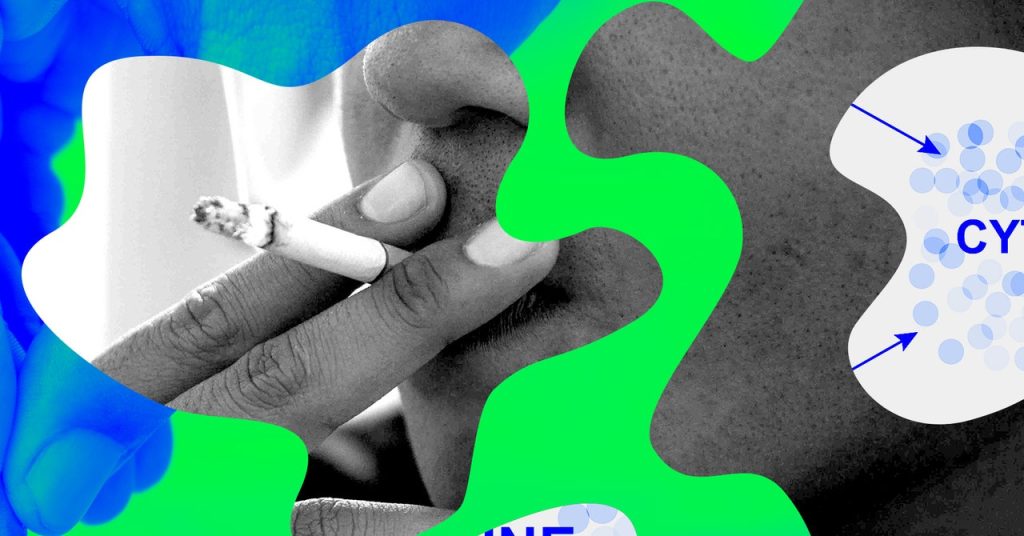The Lasting Impact of Smoking on the Immune System
Epigenetic Changes and Inflammation
As we progress into 2024, the detrimental effects of smoking on health are well-established. However, researchers continue to uncover new and alarming ways in which cigarettes can impact our bodies. Darragh Duffy’s research group at the Institut Pasteur is dedicated to exploring how factors such as age, genetics, and the environment contribute to individual variations in immune responses. As part of a broader study on the connections between genetics and the environment, Duffy and his team have discovered that smoking can lead to epigenetic changes—physical alterations to the DNA molecule that turn genes on or off. These modifications appear to be linked to the long-term effects of smoking on the immune response.
The Double-Edged Sword of Immune Reactivity
Interpreting the effects of smoking on the immune system can be complex. While a more reactive immune system in smokers may seem beneficial, as short-term inflammation aids in healing during injury or illness, an excessive response that persists after the threat has passed can result in chronic inflammation or autoimmune disorders. Sheena Cruickshank, an immunologist at the University of Manchester, suggests that while quitting smoking can restore the inflammatory response to its pre-smoking state, the epigenetic changes caused by smoking may be more challenging to reverse. The affected immune cells are long-lived and can remain in the bloodstream for years, potentially requiring ex-smokers to carry traces of their past cigarette use until those cells die off.
The Complexity of Environmental Factors
It is important to recognize that smoking behavior does not occur in isolation. The 1,000 donors in this study lead diverse lives shaped by countless factors beyond cigarettes. Adam Lacy-Hulbert, an immunologist at the Benaroya Research Institute in Seattle, Washington, emphasizes the difficulty in untangling the effects of various environmental factors. While the study accounted for age and sex, there are many other variables at play. Cruickshank notes that although the impact of any single environmental factor, including smoking, may be modest, these effects can accumulate and lead to significant changes in the immune system.
Implications for Vaccine Delivery
The findings of this study may have significant implications for vaccine delivery. Vaccine recommendations are already tailored to specific age groups due to the known increase in inflammation as we age, a phenomenon immunologists refer to as “inflammaging.” Lacy-Hulbert raises the question of whether environmental factors, such as smoking habits (both past and present), should be considered when planning the timing or formulation of vaccinations. He speculates that if smoking is associated with a degree of change in the immune response similar to aging, it could potentially add years to an individual’s immunological age.
Ongoing Research and Future Directions
Duffy and his colleagues at the Milieu Intérieur project have several follow-up projects underway, collecting data from donors in Africa and Asia, as well as from children and adults over 75 years old. They are also preparing a 10-year follow-up report with 415 of the original 1,000 donors sampled in the Nature study to investigate how lifestyle changes affected their immune response over that decade. Moving forward, researchers hope that future studies will conduct specific experiments to test these associations in the lab and delve deeper into how our environment and behavior shape our immune system.
Maintaining a Healthy Immune System
Until more is known about the long-term impact of smoking and whether its effects can be reversed, Cruickshank advises following basic health guidelines to maintain a healthy immune system: consume a varied, minimally processed diet; engage in physical activity; manage stress; and prioritize sleep. Duffy emphasizes that smoking is likely the worst thing you can do for your health. However, there is encouraging news: after quitting, the effect of smoking on the immune response appears to diminish over time.
The best time to stop smoking is now. It’s always a good time.

1 Comment
Quitting smoking isn’t enough to undo the damage to your immune system!